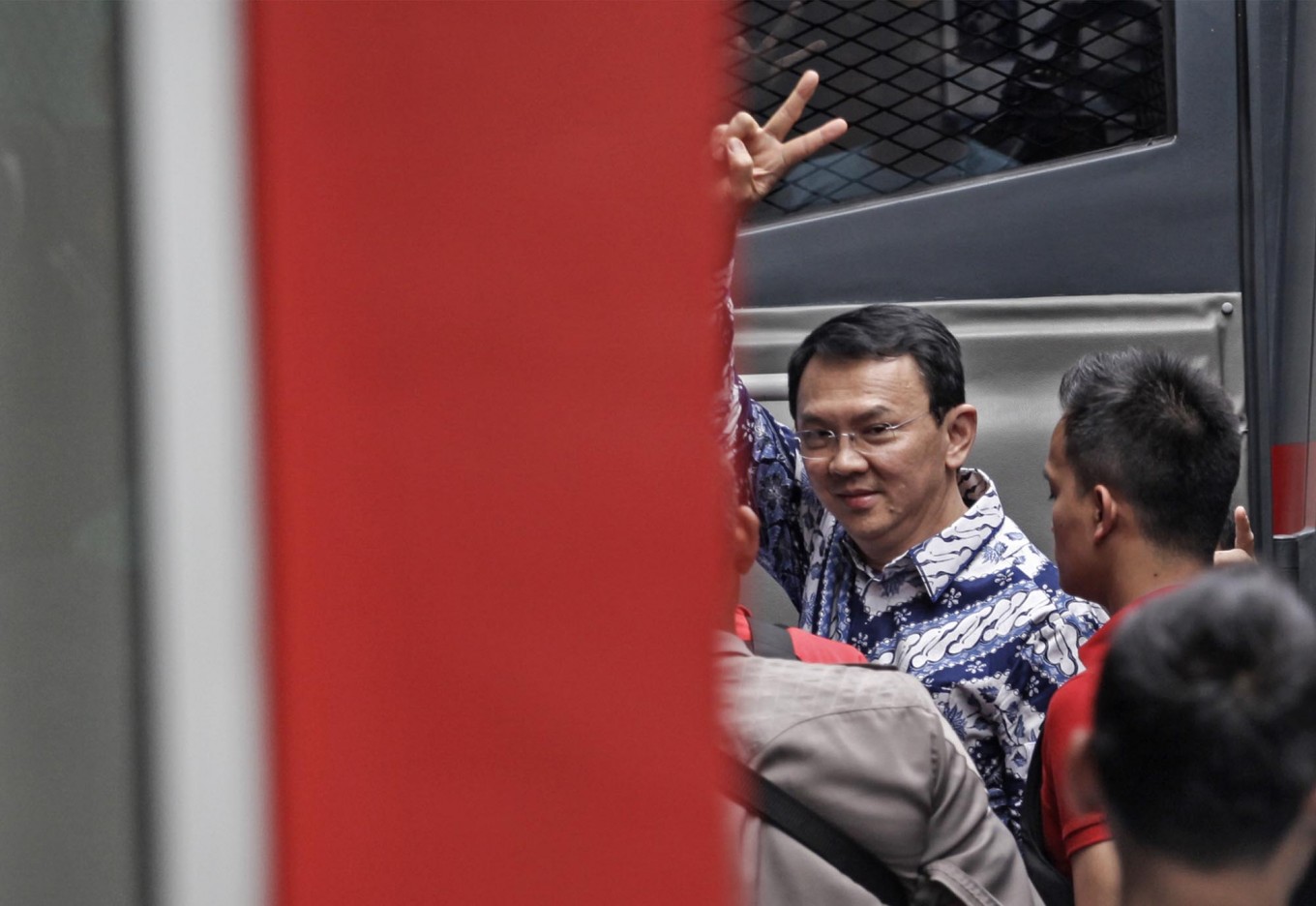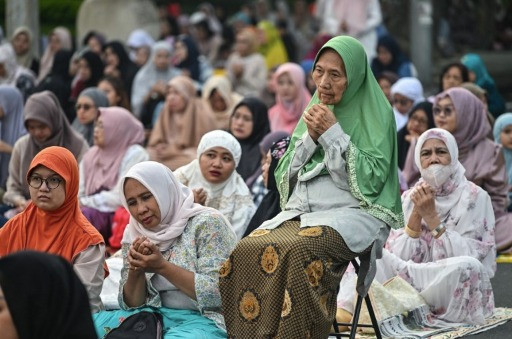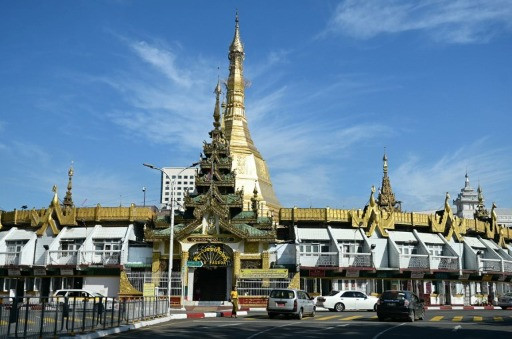Pancasila and the problematic blasphemy law
The current interpretation and use of the blasphemy law foster a climate of intolerance and allow the law to be used to justify an extralegal discrimination of minorities.
Change Size
 Jakarta Governor Basuki (Antara/Ubaidillah)
Jakarta Governor Basuki (Antara/Ubaidillah)
I
ndonesia is a multicultural country characterized by the coexistence of several different religions, which poses a potential for conflict. Indonesia claims to be a democratic secular state that does not support a particular religion because of the multicultural and multireligious character of the country.
The adoption of Pancasila in 1945 as the state ideology and ideological basis of law aimed to balance the newly independent country by making Indonesia neither a theocratic Islamic state nor a secular state. The first principle, stating “Belief in one God”, was intended to be a crucial factor in stabilizing the newly independent Indonesia, as it clearly recognized major monotheistic religions while excluding communism.
Pancasila’s own theistic-secular character is expressed by this belief in One Supreme God (“God” meaning, and thus accommodating, “all belief systems”), but the law and legal institutions interpret Pancasila principles too narrowly because of the Islam-oriented politicization of discourse. Examples are the lack of consequences in the case of riots caused by Muslims against non-Muslims (the rallies in Jakarta against the Christian former Jakarta governor) or the lack of will shown by authorities in pursuing offenders of non-Islam blasphemy. The Indonesian police does not take necessary preventive measures to stop attacks against minority religious communities. Such a situation, particularly visible nowadays, could lead to religious conflict in which the victims will be religious minorities, hence further diminishing Indonesia’s global reputation regarding the protection of its minorities.
Founding father and first president Sukarno proposed the new ideology as a compromise between an Islamic and a secular state, which was embodied in the 1945 Constitution. On June 1, 1945 Sukarno explained in a speech the five principles of Pancasila: Belief in one God, humanitarianism, unity of Indonesia, democracy and social justice.
The first principle presents the relationship between state and religion as a theistic secular principle, based upon the belief in a single God who is not a representative for a particular religion, but rather represents all religions and belief systems in Indonesia. The theistic secular principle here defines religion, a traditional element of the Indonesian identity.
This principle states that every religious denomination can be represented within the context that the state allows religious freedom, but according to Article 29 of the Constitution (UUD), Pancasila excludes any religion (including dominant Islam) from becoming the national religion.
Indonesia’s blasphemy provision of the Criminal Code is based on the 1965 blasphemy law, and specifies that the six recognized religions in Indonesia are Islam, Buddhism, Protestantism, Catholicism, Hinduism, and Confucianism. Indonesian citizens are required to identify themselves as members of one of these six faiths, and they may not declare atheism.
The problem with the law is that it lacks clarity as to what acts constitute “blasphemy” or “religious defamation,” leaving their interpretation open to abuse by political opponents. The core problem of this law lies in the fact that blasphemy has never been clearly defined.
The blasphemy law may violate the right to freedom of expression and impede the religious expression of minority groups. In the opinion of the Western world as presented in international media, the blasphemy law is considered to discriminate against non-Muslims – especially after the trial of outgoing Jakarta governor Basuki “Ahok” Tjahaja Purnama, who was convicted for blasphemy. Ahok is a Chinese Christian, and “blasphemy” is often defined by mainstream Muslims.
Thus, although Pancasila seems to give equal state recognition to all major religions, the dominance of Islam as the mainstream religion is strongly visible. The authorities set boundaries overprotecting Islam not for religious reasons, but for the political benefits of the support of Islam-oriented political leaders, such as those allied with the Islam Defenders Front (FPI) leader Rizieq Shihab. The state has become the guardian of social order, not as defined in the context of the ideal social order articulated in Pancasila, but as defined by radical politicians.
Another reason for this situation is a permissive government which is afraid of taking any action against a violation of law because of its fear of the power of radical groups, allowing religious intolerance to grow. Undoubtedly, the politicization of both religion and the Pancasila by opportunistic politicians and the lack of dialogue have significantly contributed to increasing intra-religious conflict and fear among religious minorities. The government fails to prevent and appropriately address violence based on religious beliefs.
The current interpretation and use of the blasphemy law do not protect the primary intent of Pancasila to stabilize a multicultural society; instead, they foster a climate of intolerance and allow the law to be used to justify an extralegal discrimination of minorities. The government does not consistently use its authority in cases of violations of Pancasila.
The solution is a government which is not afraid of facing these issues.
The existence of the Pancasila state ideology is obligatory in stabilizing the multicultural society of Indonesai. Bhinneka Tunggal Ika, or Unity in Diversity, is not merely a motto; it is a duty.
***
The writer is a doctoral candidate at the University of Silesia in Katowice, Poland. His research focuses on sociology of law and Indonesian culture. Email: tomasz.burdzik@gmail.com.
---------------
We are looking for information, opinions, and in-depth analysis from experts or scholars in a variety of fields. We choose articles based on facts or opinions about general news, as well as quality analysis and commentary about Indonesia or international events. Send your piece to academia@jakpost.com. For more information click here.









